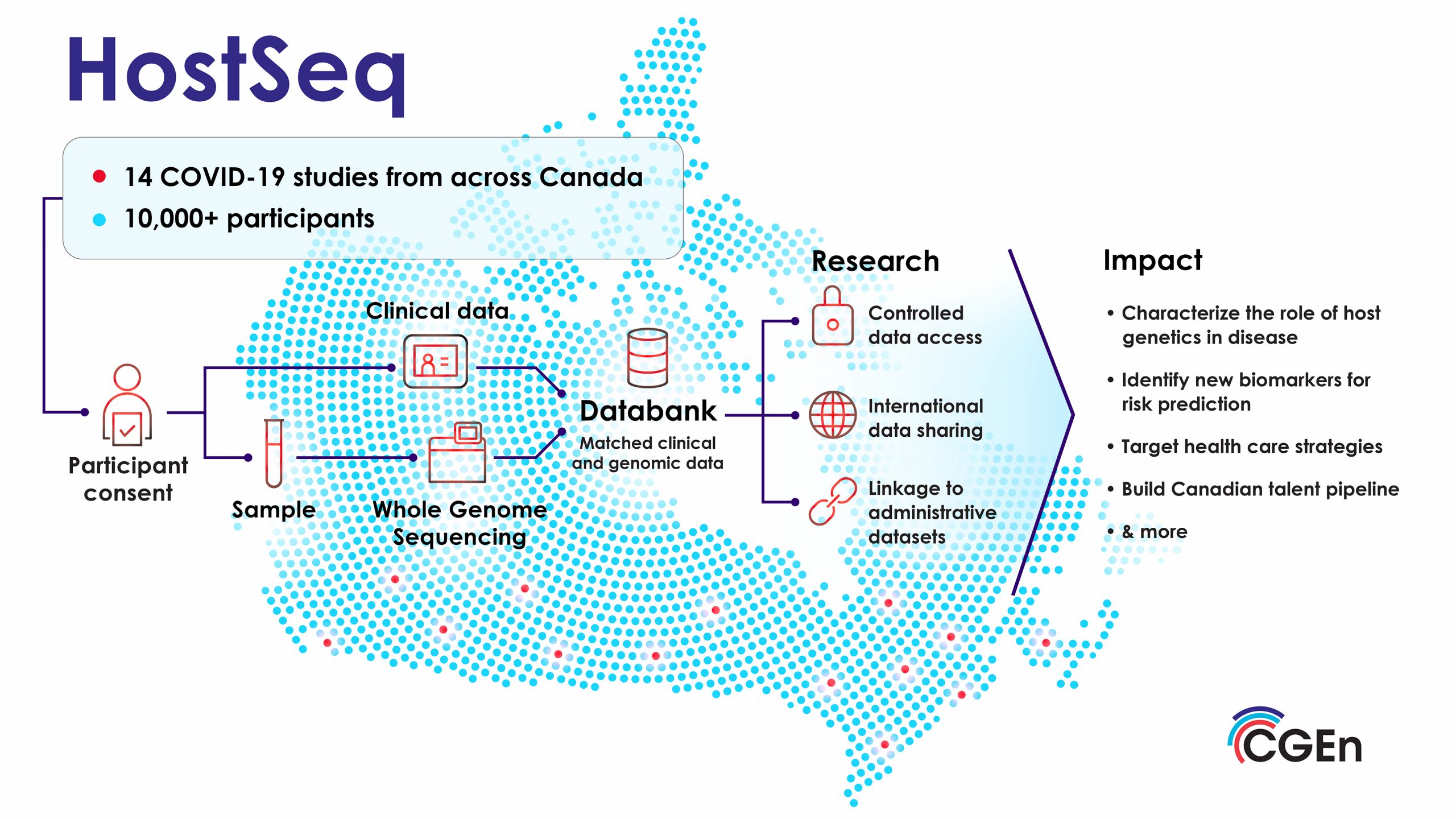Unleashing the Potential: The Transformative Role of Artificial Intelligence in Precision Medicine
By: Shantala Hari Dass

From left to right: Dr. Naveed Aziz, Fanny Sie, Dr. Devin Singh, Dr. Tracie Risling
Introduction:
The landscape of health care is on the cusp of transformation, and Artificial Intelligence (AI) holds the key to revolutionizing patient outcomes, refining clinical decision-making, and streamlining costs. However, this transformative potential is accompanied by a set of challenges and ethical considerations that demand careful consideration.
CGEn curated an insightful panel discussion on November 13, 2023, at the Canadian Science Policy Centre’s annual conference in Ottawa, titled ‘The Role of Artificial Intelligence in Delivering Precision Medicine of the Future’, moderated by Dr. Naveed Aziz, CEO at CGEn. Renowned panelists—Dr. Devin Singh, Emergency Medicine Physician and Clinical Lead in Artificial Intelligence and Machine Learning at SickKids, Dr. Tracie Risling, Associate Professor in the Faculty of Nursing at The University of Calgary, and Vice-President of the Canadian Nurses Association, and Fanny Sie, Head of AI and Emerging Technology External Collaborations at Roche Global Integrated Informatics—shared profound insights into the opportunities and challenges presented by the integration of AI into precision medicine, with a focus on ethical, regulatory, and societal implications. This report encapsulates key take-aways and poignant quotes from the discussion.
Three Key Takeaways:
1. Innovation in Policy for AI in Precision Medicine:
There is an urgency to innovate policies governing the implementation of AI solutions in precision medicine. This sets the tone for the broader discussion on adapting regulatory frameworks to unlock potential benefits. A unified approach would contribute to mitigating potential risks and fostering a secure pipeline for AI industry development.
“It would be nice for the Federal Government to come up with a broad implementation strategy that can be adjusted and adopted in Provinces and Territories across the country.”– Fanny Sie
“There is an opportunity for Canada to learn from policy models in the US and EU to mitigate potential harms and build a pipeline for the industry that is deeply aligned with citizen privacy.”- Devin Singh
2. Collaborating to Build AI Tools for Precision Medicine:
How well-informed is the general public in Canada about AI and precision medicine? This question is pivotal, considering the collaborative efforts required between patient partners and practitioners in co-designing solutions. These AI tools should be built in collaboration and cooperation with patients and healthcare professionals such as doctors and nurses. In this process, we must caution against making assumptions based on social determinants of health, stressing that individuals facing challenges like food insecurity or lack of housing can still be valuable contributors to the development and implementation of emerging technologies.
The gaps extend to the workforce as well with the massive gaps in education around ethical AI use. Concerns were raised about creating a workforce ill-equipped to implement AI solutions effectively and equitably, stressing the need for comprehensive education.
“We need a better handoff between academic research outputs and industry to get Canadian-made technology/AI solutions into the Canadian healthcare system”- Fanny Sie
“For an effective implementation of AI in health care, you need practitioners with IA – intelligence amplification. AI won’t replace practitioners, but it will be on the shift with them,” – Tracie Risling
3. Diversity and Sustainability in AI Implementation:
AI is pushing the diversity question to the forefront, necessitating attention in ways that previous technologies did not. However, the lack of reflective data from these diverse communities has hindered the capitalization of this potential.
“Canada has some of the most diverse communities in the world whose expertise and data can be used to build equitable AI tools“- Devin Singh
“If you want scale and sustainability, you need long-term engagement of patients and practitioners, and trust.” – Tracie Risling
Conclusion:
The CGEn panel has illuminated the intricate landscape of AI’s role in the future of precision medicine. The discourse navigated through the urgent need for policy innovation, the imperative of closing educational gaps, and the importance of data reciprocity to empower patients. The panelists stressed that diversity is not just a checkbox but a catalyst for developing equitable AI tools. Furthermore, multidisciplinary collaboration and trust emerged as critical elements for scaling AI initiatives in healthcare. As we forge ahead, learning from global policy models and establishing a broad federal implementation strategy could position Canada at the forefront of AI-driven precision medicine. Summarising the need for such discussions, Naveed Aziz highlights,” In the realm of precision medicine, the transformative alliance of AI beckons for a thoughtful discourse—a vital conversation that navigates the potential benefits, ethical considerations, and necessary policies to ensure responsible and impactful integration for the betterment of health care. These cannot be one-off events but instead, ongoing dialogues that inform policy, practice, and implementation at all levels.” The panel discussion at the Canadian Science Policy Centre’s annual conference has not only fostered an essential dialogue but also charted a course for the future of healthcare outcomes for all Canadians.








